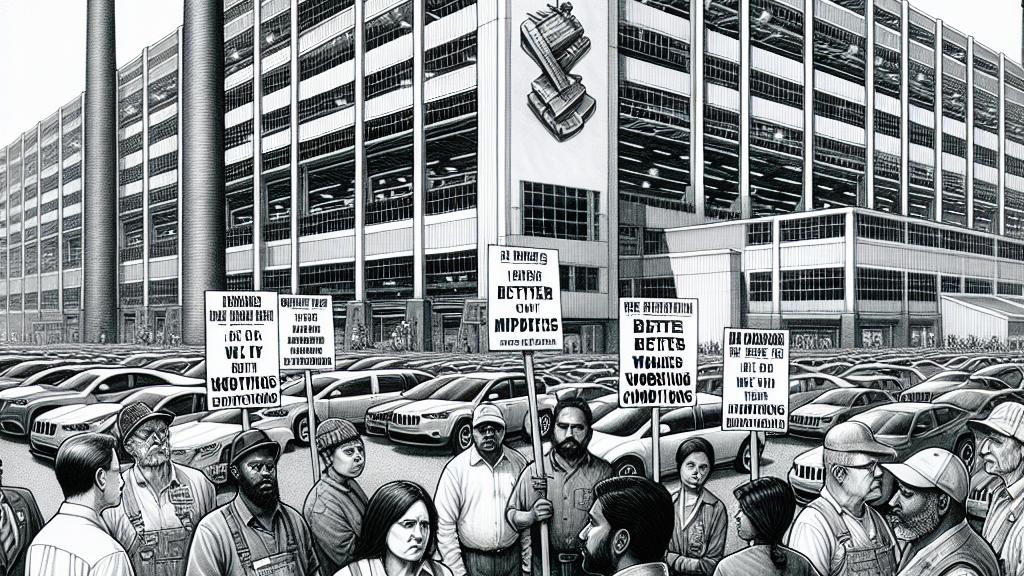Stellantis Sues UAW Over Strike Threats
Overview
- Stellantis has launched a federal lawsuit against the UAW, escalating a fierce battle over potential strikes.
- The automaker seeks compensation for anticipated losses due to strike actions, claiming a breach of their existing contract.
- UAW members have overwhelmingly voted for strike actions, highlighting rising tensions and unresolved grievances.

Background of the Dispute
In a dramatic turn of events, Stellantis NV, the automotive giant known for brands like Jeep and Dodge, has initiated a legal battle against the United Auto Workers (UAW) union in the United States. This lawsuit comes on the heels of a significant vote among UAW members at Stellantis' Los Angeles Parts Distribution Center, where an overwhelming majority supported the idea of striking to express their dissatisfaction with working conditions and wages. The conflict erupted following allegations that Stellantis has failed to uphold its end of a contract forged last year, thereby creating a rift between the company and its workers. Filed in California, the lawsuit asserts that the UAW could face penalties for any potential strike that leads to financial losses, signaling Stellantis's commitment to safeguarding its operational interests and productivity.
Stellantis' Position
Stellantis stands firm in its belief that operational adjustments are essential and within their contractual rights, citing specific provisions that allow shifts based on economic conditions. For instance, they argue that market fluctuations necessitate flexibility in production strategies, which has become vital in today’s dynamic auto industry. In a robust defense, Stellantis has stated that if the union follows through with strike actions, it will seek substantial financial damages for any disruptions. On the other hand, UAW President Shawn Fain has ardently challenged this narrative, declaring that Stellantis's reluctance to honor previous agreements poses a serious threat to workers' livelihoods. Fain insists that the union is ready to take necessary actions, portraying the fight as not just about wages, but about dignity and respect for every worker involved.
Broader Implications
What unfolds in this escalating dispute between Stellantis and the UAW is indicative of a larger shift in labor relations across the automotive sector. As the UAW engages in strikes against all three major U.S. automakers—Stellantis, Ford, and General Motors—it reinforces a growing collective resolve among workers demanding fairness amid a backdrop of corporate profits hitting record highs. Experts suggest that the outcome of this lawsuit could set a new standard for labor relations, influencing how unions negotiate contracts and respond to corporate changes in the future. This legal conflict, charged with emotion and consequence, not only captivates the automotive world but also exemplifies the broader struggle for workers’ rights nationwide. Ultimately, the determination of the UAW illustrates a profound message: workers united can assert their rights and fight for a future that values their contributions.

Loading...